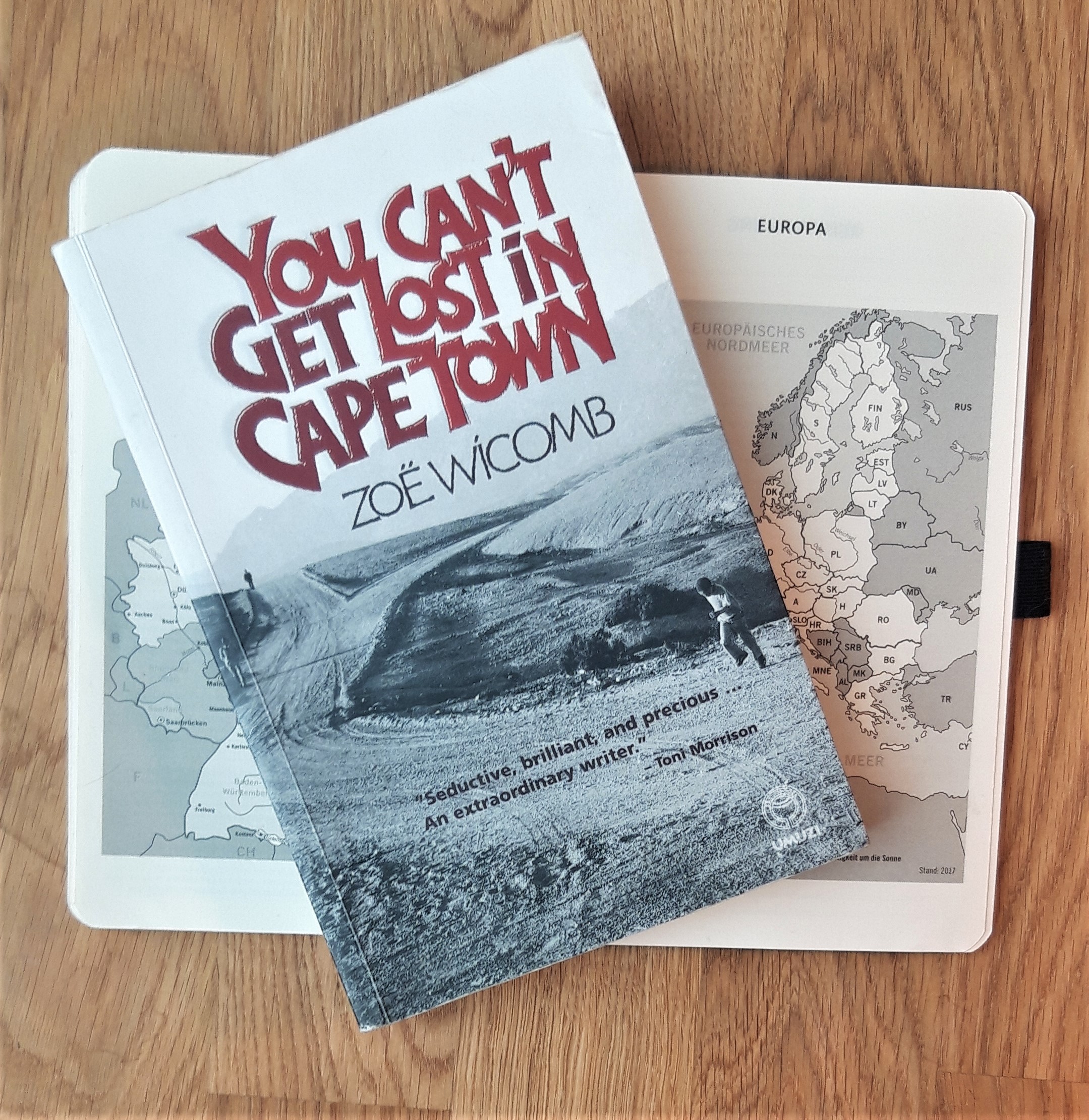
Postcolonial literatures and Eurocentrism: Zoe Wicomb’s You can’t get lost in Cape Town
When I first encountered Zoe Wicomb’s You can’t get lost in Cape Town as an undergraduate at the University of Cape Town, it struck me as a weird book. In terms of genre, it’s such a tricky text. As a whole, it follows young Frieda Shenton from a childhood in rural Namaqaland, north of Cape Town, during apartheid in the 1950s, to her return to South Africa as a published writer after having studied and lived abroad in England for many years. But each chapter is also a unit unto itself; there are large time gaps between sections; and some chapters contradict the account of events given previously.
The book was first published in 1987, but the copy I reread recently was a re-publication from 2008. In the foreword to this edition, the well-respected scholar David Attwell writes that “[b]ehind You can’t get lost in Cape Town lies the long European tradition of the Bildungsroman, the novel of self-realisation. Wicomb picks it up in elusive fragments” (7). On the one hand, it’s a fair enough claim, because there are moments in the book when Wicomb is so clearly in conversation with a European literary tradition. Yet at the same time, I was confronted by the incompleteness of this description, and how representative it was of the way postcolonial literatures tend to be articulated in some kind of relationship to Europe.
In colonial and postcolonial contexts, Europe was never just a geographical entity. In colonial stories, it was heavily loaded with ideas about how the colonies should strive to be. Europe’s colonial powers modelled their continent as the source of ‘civilisation’ and ‘culture’, which they had a supposed duty to export to the colonies. Postcolonial literatures and studies have long been tackling these ideas and their legacies, by recognising Eurocentrism in its varied forms, and building tools to dismantle it.
Debunking straightforward Eurocentrism might be old hat, but the effects Eurocentric ways of thinking have had on forms on knowledge production are more long-lived. There are probably few people who think that Europe is the centre of the world today, but ways of making knowledge – or what counts as knowledge – that imply a European centre or standard are more commonplace.
Writers and thinkers of the global South didn’t take this lying down. One form their resistance took was in writing their own stories. A famous postcolonial study published in 1989 called this “The Empire Writes Back”: literatures of the (post)colonial South contested colonial stories and colonial representations of colonised peoples by ‘writing back’. This was an empowering move for many postcolonial writers. Chinua Achebe’s Things Fall Apart, which was published in 1958 and is now a staple of the postcolonial canon, would be a key example of this kind of writing. Postcolonial writers appropriated colonial languages and the power to tell their stories from their own perspectives.
In writing back to Europe, the discussions happening in and around these literatures were often putting themselves in conversation with a figure of Europe. Intellectuals like Ngugi wa Thiongo (1986) critiqued, amongst other things, the fact that the implied audience of English-language texts was English-speakers and that such writing often implicitly appealed for European approval or legitimation. Since these postcolonial writings were understood as a rebuttal of European writings, a figure of Europe still determined the structure of the conversation. African literature in English, in this arrangement, is a later appendix to English literature proper.
When I read it, I couldn’t help but see Atwell’s description of Wicomb rehearsing this trajectory: first, there is the European Bildungsroman; then, there is Wicomb, beachcombing for useful bits to appropriate and reassemble. Atwell writes Wicomb into a European literary lineage. Yet You can’t get lost in Cape Town’s generic ambivalence repeatedly ruptures the continuity of the novel form, and the trajectory of progress implied by the genre of the Bildungsroman. Choosing this framing entails writing Wicomb’s text into a linear and ultimately Eurocentric literary tradition. Her text emerges belatedly, to reinvent the originally European ‘invention’ of the Bildungsroman, when in fact her book perpetually shows up the inadequacy of this literary tradition to the stories that she has to tell. Sometimes, her book engages in a dialogue of equals with a European literary tradition; occasionally, it instrumentalises that tradition as ironic counterpoint to itself; more often than not, it shows up the inadequacy of such a straightforward genealogy.
In recent years, scholars and thinkers have increasingly called for a closer engagement of South-South relations, i.e. of cultural exchange between global South agents. This seems to suggest a growing sense of the inadequacy of dated frameworks that place postcolonial literatures as always being in some kind of relationship to Europe. Thinkers like Evan Maina Mwangi and Mukoma wa Ngugi have emphasised the ways in which literatures of the global South don’t (have to or want to) understand themselves as necessarily being in dialogue with Europe. Postcolonial literatures have long been doing something else: engaging in exchange with each other; inventing their own literary traditions; having conversations to which Europe is incidental. The apparatuses that produce ‘knowledge’ around them just might be catching up more slowly.
